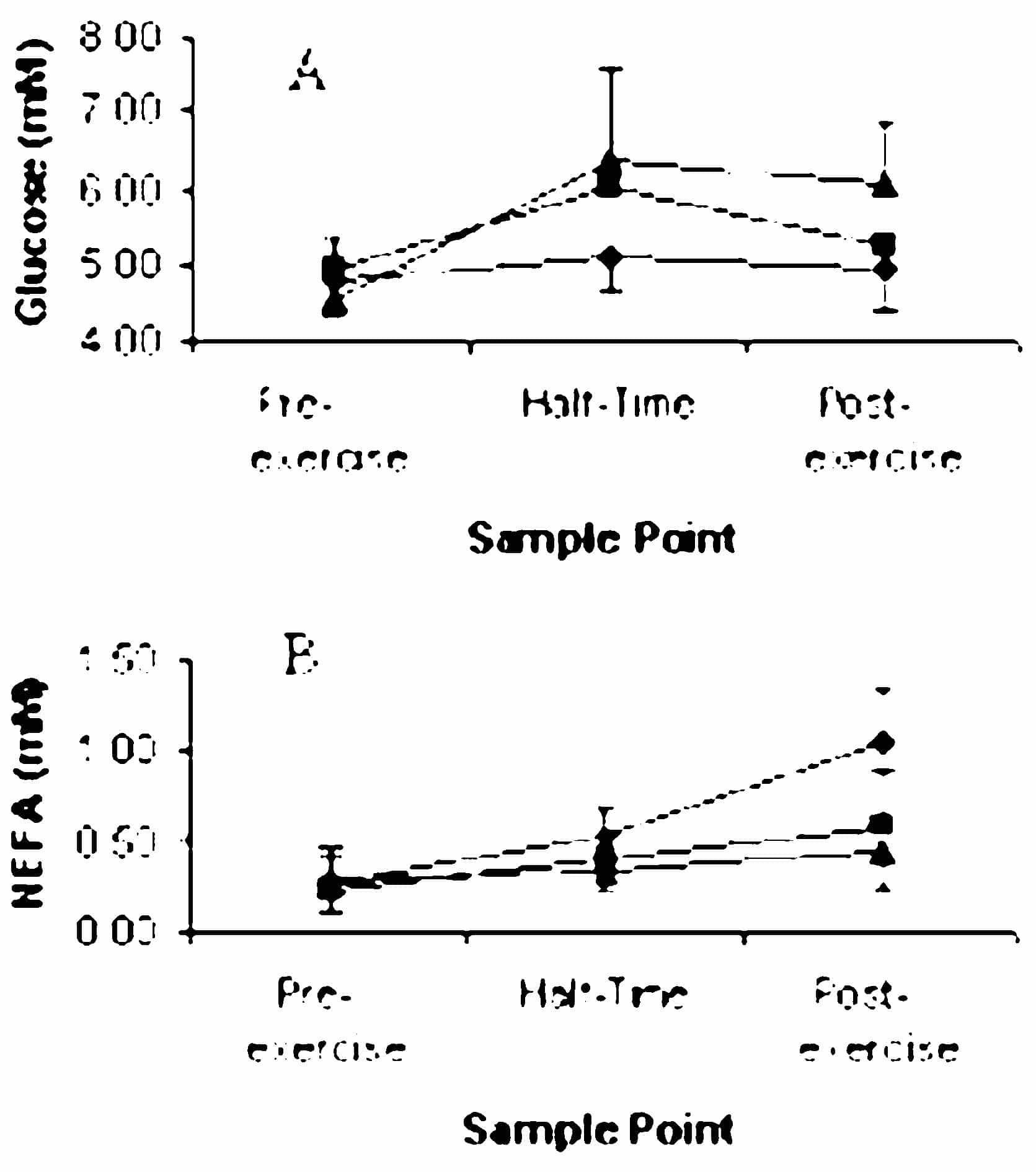During soccer play there is a net depletion of muscle glycogen and players may lose 2-3 L of sweat. Therefore there are opportunities for enhancing performance during a game by adopting refuelling and rehydration regimes. The present aim was to manipulate the provision of sports drinks during soccer-specific exercise and to investigate the effect on metabolic responses and on components of performance.
Twelve male soccer players of mean ( ± S.D.) age 24.5 ( ± 3) y; height 1.77 ( ± 0.1) m; body mass 74.5 ( ± 7) kg; Î{special}J{special}max 59.37 ( ± 7) ml kg-1 min-1 performed a soccer-specific protocol, incorporating 3 s-s sprints on a non-motorised treadmill (Drust et al. 2000) after providing written informed consent. On two occasions either 7 ml kg-1 BM of carbohydrate-electrolyte (CHOv) or placebo (PLA) solution was ingested before and at half-time (532 ± 38 ml; total 1065 ± 76 ml). On a third occasion the same volume of carbohydrate-electrolyte solution was consumed (CHOf) but in smaller volumes at 0, 15, 30, half-time, 60, 75 min (178 ± 13 ml). Blood samples were collected at rest, half-time and full-time and analysed for glucose and Non-esterified Free Fatty Acids (NEFA). Respiratory analyses were undertaken throughout to determine the rate of carbohydrate oxidation, as was 3-s sprint power. Trials were performed in a double-blind counter-balanced manner. Repeated measures ANOVAs were used with significance at P < 0.05.
Plasma glucose (Fig. 1A) and carbohydrate oxidation (Table 1) were higher (P < 0.05) during CHOf compared with PLA. The concentration of NEFA (Fig. 1B) was reduced (P < 0.05) with CHOv and CHOf compared with PLA.
Mean sprint power was not affected (P > 0.05) by the experimental treatments (PLA: 1080.42 ± 241 W; CHOv: 1103.67 ± 228 W; CHOf: 1090.59 ± 136 W).Ingesting carbohydrate-electrolyte solution significantly affected plasma metabolites and increased carbohydrate oxidation but failed to impact on performance of short sprints during soccer-specific exercise. Furthermore, the timing and volume of ingestion did not significantly affect metabolism or sprint power.
This study was sponsored by GSK.


